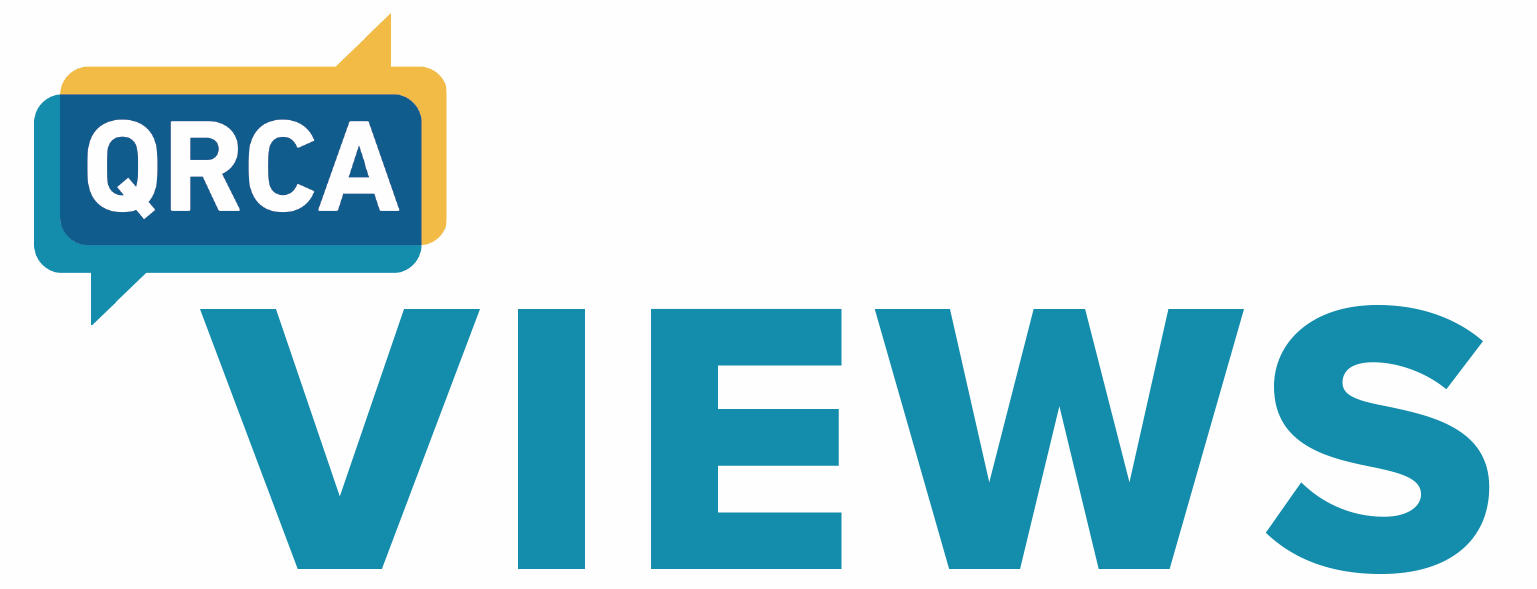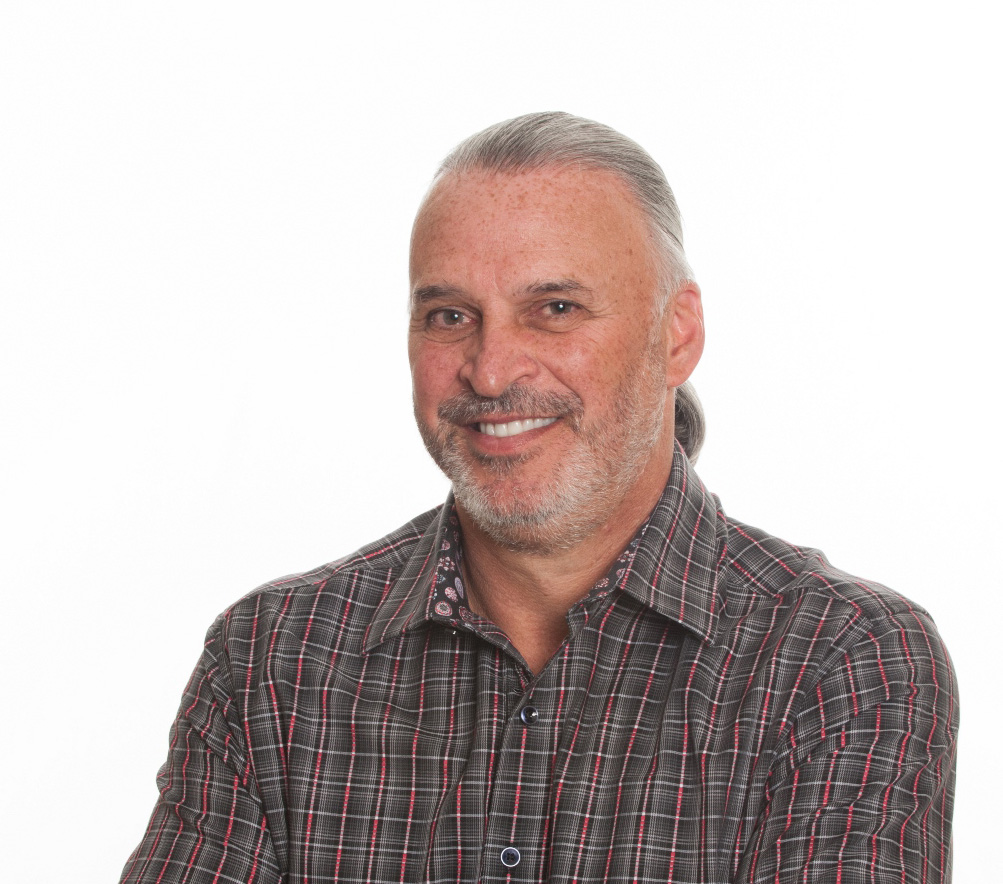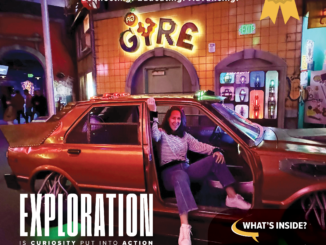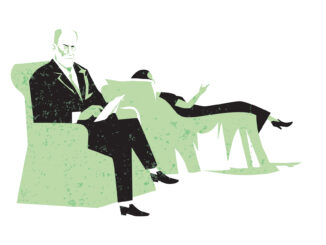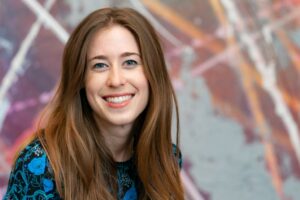
by Zoë Billington, User Research & Customer Insights, Santa Monica, California, zbillington@gmail.com
Interview with Steve Schlesinger, Executive Chairman, Sago
This quarter, I sat down with the one and only Steve Schlesinger, CEO of Schlesinger Group. If you’re like me, you’ve spent countless hours in a research facility with his name on it, but you might not know the story of where the business began. After this profile was written, Schlesinger Group announced a name change to Sago.
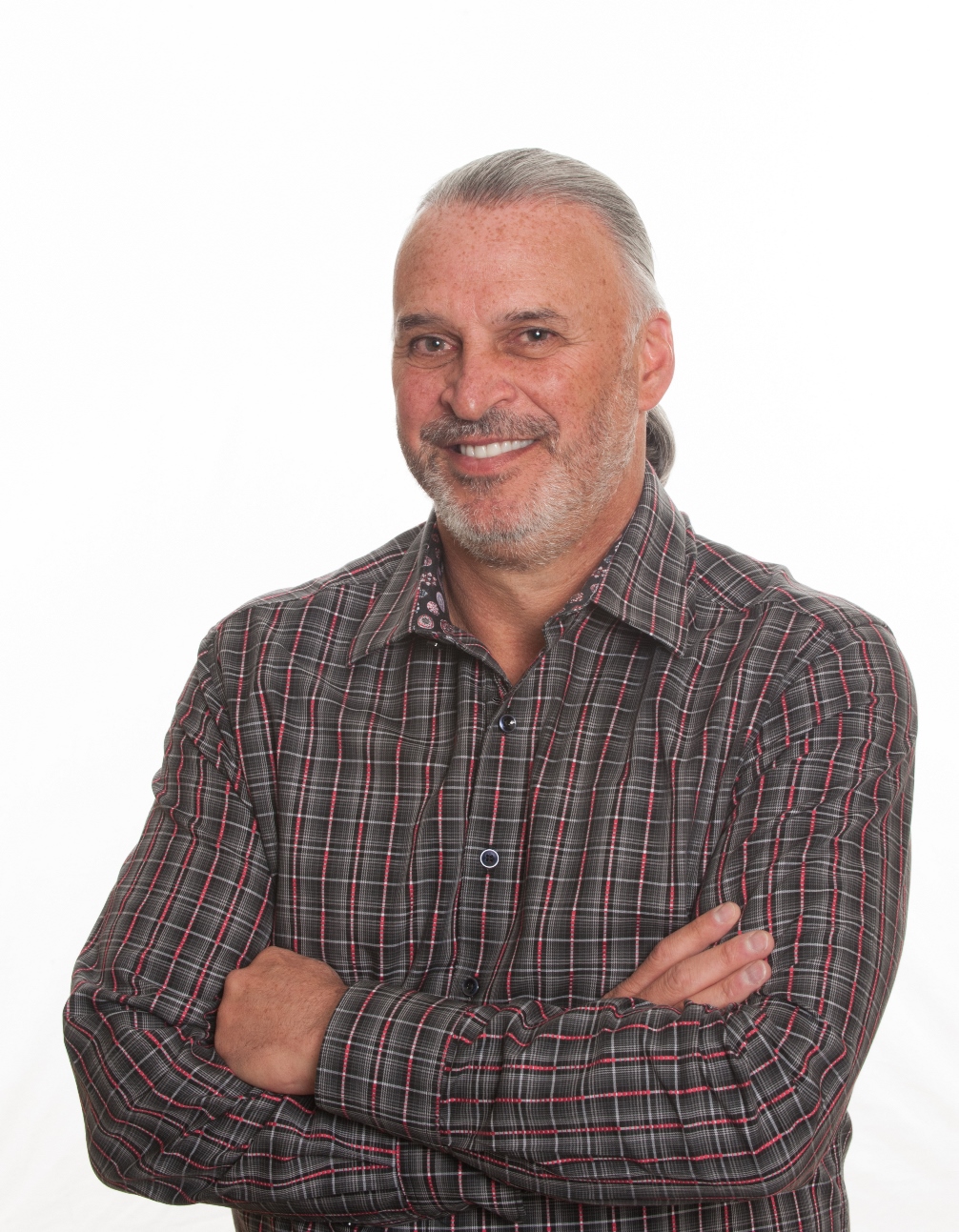
Zoë Billington: I’d love to walk down memory lane a bit. Can you tell me about your mother and the other pioneers in the business?
Steve Schlesinger: In the early ’60s, my mom started as an interviewer doing door-to-door discussions, working primarily for a company called Crosley Surveys. My oldest brother was going to college in a few years, and she decided this was a good way for her to make some extra money for the family.
Turns out, she was really good at it. She loved talking to people. When I was a kid, she was quite embarrassing to me because no matter where she was, she’d just start talking to people—it’s amazing how much information she could gather on an elevator ride.
From Crosley Surveys she moved on to many other organizations, some of them with the legends of the industry—people like George Gallup, Daniel Yankelovich, and Lou Harris. Suddenly, she was helping a bunch of businesses, and they collectively said, “Why don’t you open your own company?”
When she incorporated in 1966, she had a small company that literally went from the bedroom to the kitchen to the basement, where she set up an office. She had a couple of people working for her, and that took her into the ’70s.
Zoë: What happened in the ’70s?
Steve: She got connected with an ad agency called Chiat Day, which is now TBWA\Chiat\Day. They believed that focus groups should be done in people’s homes, not in an office environment. So, they used our home!
My mother was running focus groups Monday through Thursday, every week, using our family room as the focus group room. The clients would sit in the kitchen and watch it on closed-circuit TV. My father and I had to leave the house every day at 4 p.m., and not come back until after the 6 p.m. group was settled. Then we’d sneak upstairs while they did the 6 p.m. and 8 p.m. groups. That was how I lived my teenage years. I formed a really strong bond with my father because we ate dinner together Monday through Thursday, every night, every week.
Zoë: I hope you got some good leftovers from the catering for dinner at least!
Steve: Well, back then it wasn’t quite what it is now. But what was great is that she had some really cool clients. These were the early days of Apple computers and Nike and Miller beer and all the advertising that came with them. That’s how my mom really got into the qualitative arena.
Fast forward, I went off to college, graduate school, and then I was a biochemistry major trying to figure out what was next. While I was taking a year off, my mom said—as most moms would say—“You’re not going to sit on your ass. You’ll work for me until you figure out your career.”
I fell in love with the work. It made sense to me. I liked how it was project-based. I really enjoyed interacting with clients. After about six months, I said, “I think I really like this.” She said, “Well, I’m going to retire soon, so if it’s something you’re interested in, have at it, and we’ll make a plan. But we’re getting out of this basement because you can’t be going to work every day in a basement.” This is funny because now we’re all working from home, so it’s come full circle.
We opened our first focus group facility in 1985. At the time, my mom’s business was rooted in what I’d call more CPG and product-based work. But what we found is that we had an amazing run with pharmaceutical clients because we were based in New Jersey, in what’s called the “Pharma Corridor” between New York and Philadelphia and down to Delaware. We went from a two-room facility to a five-room facility and eventually opened up facilities in other markets, and we were off to the races.
That takes us through the late ’80s and early ’90s, at which point my mom started taking more time off, and I started running the business as the CEO.
Zoë: You said you were a biochemistry major before you started working with your mom. How did you learn to become a CEO?
Steve: It’s a great question because I am not a trained CEO. I didn’t go to business school, and I don’t have a background in accounting or finance. A lot of it was on-the-job learning. But I believe that if you’re willing to ask questions, seek out information, and have good mentors, you can learn and grow as you go.
To go back a little bit in time, I think one of the interesting parts when I came into the business was that many of the folks were women. Many started off working in the industry and then eventually were running great businesses. I look back and think about how my mom was a woman running a business before women were running businesses. She was incredible—she had a strong work ethic, great integrity, and was very focused on supporting the clients. She laid an incredible foundation for what our company is today, and it made it a lot easier for me to take the business and grow it.
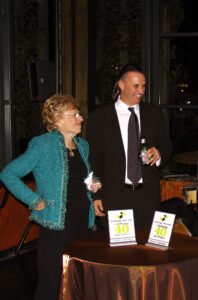
Zoë: How have you seen qualitative research as a practice and as an industry evolve over the 35 years that you’ve been in business?
Steve: Qualitative methodologies have obviously continued to evolve. When we started, everything was done in person, in big groups. It was very rare that you weren’t recruiting to see 10 to 12 people in a room. That changed to smaller groups and then a lot more IDIs, dyads, and triads. Eventually, we morphed into more of a digital practice. Of course, that was partly due to changes with COVID-19, but I think it had been an ongoing transformation for quite some time that accelerated due to the pandemic.
I also think it’s interesting that qualitative doesn’t sit by itself anymore in the context and construct of quant. You see the two being married together a lot more. The fact that clients and users are not thinking about it just in one way, shape, or form anymore is exciting. You also see a much broader mix of clients, or end users, of the research. We see user-experience people, customer-experience people, employee-experience people, R&D, business development, idea design, brand design, and so many other users of qualitative.
Zoë: As a business, how have you kept up with or even anticipated all the needs of these new users of qualitative research?
Steve: Maybe this is human nature, but we tend to get very insular—protective of our domains, of what our beliefs are, and what we’re used to doing. But I’ve observed over my 35-plus years in this industry that that’s a dangerous place to be. If you get stuck and you don’t open your eyes to new or different things, you stifle your learning and can get in a compromising position. We saw it with telephone research moving to online—there were a lot of question marks around it. Ultimately, it all got figured out, but a lot of the phone houses didn’t believe in it, got stuck there, and then they got their heads handed to them by online methodologies.
Also, our business today is very global in nature, and that’s been a real benefit to us. In the early days, clients were fine if you could just cover certain cities, let alone the country. Today, I think clients appreciate the fact that we’ve got a lot of scales that we can offer to them in partnership. Whether that’s research in New York or in seven countries. We have the ability to bring in the proper resources.
There’s this really interesting collaboration model, or cooperation model, that exists in our world because of the project-based nature of our work. Schlesinger Group can own a lot within its business, but by using a network of agency partners and freelancers, it can bring other really good resources and assets to bear for a client. To give an example: it’s like how many client companies hire researchers on a contract basis. Or how an agency might work with a freelancer for one project based on specific client needs. I know there’s a downside to this project-based model, too. But, from the standpoint of a company being able to service its clients, it’s really powerful because it gives us the opportunity to be helpful in many ways without having to be experts at everything.
We’re also very transparent about that, too. This isn’t something that’s behind a Wizard of Oz curtain when we bring in folks to help us on projects. Frankly, sometimes it’s our biggest competitors we bring in to help us. That’s all part of the way this world works, and I think that’s a really wonderful thing.
Zoë: That’s an interesting point. The community is tight, and I think our versatility as researchers is unique in a way that other jobs might not be. We really have the ability to, like you said, slot in and be helpful where needed for different companies and clients.
Steve: Absolutely. I think you’re spot on, and we should play up that versatility—the flexibility and the idea that we can do a lot to support work and succeed in many ways. As a result, each week, month, and year, work could look a little different—which I personally think is refreshing.
Zoë: What advice would you give to qualitative researchers as they go along their own journeys?
Steve: I’ve always had a mentor group that I’ve relied on to help talk me down from a ledge or navigate something new. Being able to ask questions, get honest feedback, and learn from others is critical. QRCA is a great community. I’ve met lots of friends through it, and it feels like a family.
Zoë: As a QRCA member myself, and a Young Professionals Grant (YPG) recipient in 2020, I am very appreciative of you and Merrill for initiating the grant, which sponsored my QRCA conference fees in 2020. Can you tell me the story behind how and why you did that?
Steve: Merrill Dubrow from MARC Research had done one of the keynotes at a QRCA conference in Las Vegas. While presenting, he asked the group, “How many of you are under the age of 35?” Only a couple of hands went up. His observation and epiphany was: this is not good for the future of the industry. He came up to me after that keynote and said, “We should be promoting young people getting involved with these associations.” So, we thought, let’s form a scholarship. We went to another QRCA member, Monica Zinchiak, for help, and we brought in Focus Vision (now Forsta) as a partner.
How cool is it that people like yourself had the opportunity to attend and didn’t have to worry about paying for it? A lot of times, companies don’t want to pay for their more junior people to go. They want to send their senior people. But we believe that if we don’t get the 20- and 30-year-olds in the room, where’s this industry going to be in 10 or 15 years from now? These folks have ideas we need to inspire us all.
Zoë: How important are people to Schlesinger Group’s success?
Steve: The best part of my career has honestly been the people. On top of the fact that I wake up every day and have a pretty good hop in my step and still really love what I do, is that I’ve had the unbelievable pleasure of working with some great people in our organization. I also work for an incredible group of clients, many whom I call good friends now and, frankly, feel like family to me. Interestingly enough, respondents fall into this people category as well. I’ve always thought of it as a cool business because you win across the board with all of the people you interact with.
Zoë: I totally agree. We’ve got a magic trifecta of researchers, clients, and research participants, which makes for a special mix. There are things I’ve learned from participants who have opened their homes to me that have stuck with me, like this guy in Tulsa whose life motto was “always buy the damn tickets.” The clients who I spent days on the road with, in cat cafés in Tokyo, and in participants’ living rooms across New York City, who shared stories of their career journeys with me.
Steve: It’s great, right? I mean, that’s the beauty of what we do. We have this opportunity to engage with people on an interesting subject with a purpose. It’s clients, it’s staff, it’s team, it’s participants. I think that’s why this business has always made sense in my mind—because in the end, I’m a people person. I’ve always enjoyed that engagement. This job gives you the opportunity to do it all the time.
Zoë: What’s next for Schlesinger Group?
Steve: We are always thinking forward and transforming the ways we connect answers to questions, and how we communicate that to our audiences. Something new is coming that our leadership is very excited about, and we hope our clients will be, too.
Zoë: What a great note to end on. Thanks so much, Steve!
